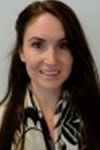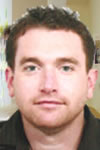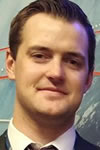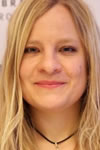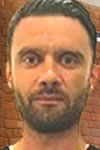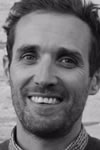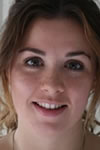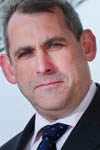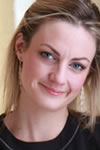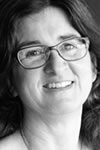Ask me a question!
What were the main 'career decision' milestones in your life so far?
To start, my main career decision milestone was when I was 15 years old and I decided to pursue the study of sciences, instead of arts and humanities. I loved history of art, painting, photography and generally being creative, but I realised that my passion for space and exploring the wonders of the world was stronger. Later, once I was studying Planetary Science at University College London (UCL), I challenged myself and applied for a competition to study at the California Institute of Technology (Caltech).
I was successful and received a scholarship worth ~$50,000 to study there, as one of only two students in England. That is where I got to do research in what interests me the most: life in extreme environments (extremophiles) and whether similar life could exist outside of Earth. I also tried very hard and received funding to work at the NASA Jet Propulsion Laboratory (JPL), while still studying at Caltech. My research there was primarily focused on studying space and life in the Universe (astrobiology), which became my vocation. Another crucial career decision came before I finished my PhD. I was offered several research fellowships and postdoctoral positions worldwide, as well as the role of Senior Research Advisor for MCSS in Canada.
However, I realised that my home country Slovakia is in a critical position now as a European Space Agency (ESA) cooperating state. We only have ~5 years to prove to ESA and to our countrymen that Slovakia is capable of being a full ESA member state, as well as to show them all of the benefits of the membership. That is why I decided to return home to try to create a space research centre with SOSA and increase the number of space-related research there. I also accepted the position with MCSS and I work for them remotely from Slovakia.
Who are the people who most influenced your career direction?
My parents and astronauts 😉 but each in the exact opposite way. My father is a diplomat and my mother is an archaeologist, therefore I was brought up learning languages, history and enjoying culture. They are one of the main reasons why I wanted to study arts and humanities in the first place. That is why they were very shocked when they discovered my passion for science and they were dubious of my decision to study Planetary Science at UCL.
Thus, my endeavours to succeed in astrobiology research were in part driven by a need to prove myself and my abilities to my family. Astronauts, conversely, are my role models. I consider them to be the best of the best, a type of superhero. I have dreamt of becoming an astronaut myself since I was 8 years old and first wore an astronauts suit. I am still going after this dream to date, despite a number of obstacles in front of me, including the fact that Slovakia is not yet an ESA member state (therefore I cannot be an ESA astronaut yet).
How did you go about getting your current job?
In the answer to question #3, I partially explained how I got to my current job. I was offered the position of Senior Research Advisor at both SOSA and MCSS before I even finished my PhD. I ended up moving to Slovakia to pursue the job at SOSA, while performing my work for MCSS remotely. In January 2016, I was elected vice chair of SOSA, so I have even more duties and responsibilities (described in section #8 below). Generally speaking, however, I got to my current job by going after my passion and childhood dreams: to study space and astrobiology, hoping that one-day I could work for NASA and/or ESA; even to become an astronaut! I have worked very hard so far pursuing these dreams. First of all, I funded all of my studies at UCL, CalTech, University of Bristol (UoB) and the International Space University’s Space Studies Program (ISU SSP) only through numerous scholarships, awards, part-time work and even charity funding (as my parents could not afford to finance my education). Moreover, I used the possibilities, offered by my studies, to the maximum to gain research experience in space exploration. For example, I volunteered to work on an extracurricular project on extra-solar planets at the University of London Observatory; I was awarded a Nuffield Foundation grant for a joint NASA/UK Space Agency MoonLite project, simulating planetary surfaces; I became a teaching assistant in astrobiology and astronomy for Bachelor’s degree classes at UCL, UoB and numerous schools in London; at CalTech I proposed research projects of my own, working with leading scientists in astrobiology, including Mars Curiosity Rover’s chief scientist, Professor John Grotzinger; I was awarded a research fellowship to work at NASA JPL; and my research projects and myself were selected for a Martian simulation mission to the Mars Desert Research Station (MDRS), USA. All of the awards and job offers that I received were the result of all of these self-driven activities, as well as the quality of my research results.
Describe a typical day?
Until recently, a typical day as an astrobiologist could range from collecting extremophiles on the surface of a glacier in Greenland; performing experiments in various laboratories; doing data analyses at university/research institutions; to being part of simulated Martian missions. Now, in a more managerial role, I also lead meetings, go to conferences, represent SOSA and my country at diverse meetings (for example at ESA headquarters) and design very big international projects.
What are the main tasks and responsibilities?
As I mentioned above, my main tasks now are more focused on leading projects, rather than doing pure astrobiology research as I did before. On the scientific front, I manage research projects and teams (of scientists, experts in different fields of the space sector and even people from the commercial, financial and judicial sector). This involves being responsible for fieldwork, labwork and organising exciting projects, such as flying experiments in stratospheric balloons.
On the managerial front, I am in charge of a lot of international relations work, dealing with the media (for example I give outreach presentations, interviews for the press and organise educational workshops) and preparing new international projects (scientific, educational and/or commercial). I am also responsible for making sure that everything gets done on time, as efficiency as possible and that everyone does their share of the work.
What are the main challenges?
The main challenges of my job(s) are managing multiple projects, many staff members and a variety of duties at the same time. There is often too much work for the small number of staff at SOSA or at MCSS, so we have to be very organised and efficient to do everything properly. My jobs are also quite varied, so I have to be able to wear many hats at the same time. This means that I have to be able to think as a leader, scientist, a diplomat, a manager and a friend at the same time, which can be quite demanding.
Finally, I also have to point out that even in this day and age, there are people that are sceptical of a young woman trying to push through to new boundaries and leading big projects. I constantly have to prove myself to others, especially the older generation here in Slovakia. I will not let it daunt me or put me off of my goals whatsoever. It is, however, another obstacle sometimes when trying to set up collaborations or negotiate with those people.
What do you like most?
Is there anything that isn't great?
What particular skills do you bring to your workplace?
Being open-minded, flexible, a good team player and leader (I listen to everyone's opinions and try to find compromises suitable to everyone), very organised, responsible, all while being friendly and caring about others. It's always very important to smile and laugh as much as possible, for your own and everyone's good. Then, there are of course all of the scientific, language, managerial and presentation skills that I have acquired throughout the years and my experiences.
What subjects did you take in school and how have these influenced your career path?
Since I love diversity and learning a range of things, I on purpose studied a lot of different subjects at school. As I explained above, in high school I decided to focus on sciences (biology, chemistry, maths and physics). However, I also loved arts and humanities, so I pursued studying history of art, history, geography and languages (French, German, Italian and English) as well.
My decision to have a varied education had a huge impact on my career. It allowed me to be able to tackle a number of multidisciplinary challenges and do the work that I do today: not just pure science, but also running international projects and representing my country at worldwide meetings/conferences.
What is your education to date?
I had most of my primary education in Slovakia and then I attended the French Lyce Chateaubriand in Rome, Italy (the equivalent of high school/A levels). To get into astrobiology and space research, I studied Planetary Science at both UCL and Caltech for my MSc degree, which I completed with First Class Honours and was awarded a Dean of Science commendation. I have also earned a PhD degree in physical geography, microbiology and astrobiology from UoB and I graduated from ISUs SSP programme in 2015, in the USA.
What aspects of your education have proven most important for your job?
The knowledge, skills and experiences from my education have been crucial for being able to get into my currents jobs, as well as to do them well. This includes everything that I have learnt doing labwork, fieldwork, attending workshops, conferences and generally learning from my teachers/professors and colleagues. Group projects have helped me develop teamwork and leadership skills, while individual projects have taught me good time-management and self-discipline. Furthermore, I learnt to work on multi- and inter-disciplinary projects, with people from diverse backgrounds and cultures, as a result of studying a range of subjects in different countries.
What have been the most rewarding events in your career so far?
I think I had tears of joy every single time I received an award, scholarship and generally any appreciation for all of my hard work and efforts. So I treasure these moments a lot. Recently, for example, I was awarded the Women in Aerospace Europe Young Professional Award in Paris, in front of the head of ESA and many other space agencies. This was a great honour and a truly memorable moment. Otherwise, in terms of particular events/moments, here are the most rewarding ones that come to mind: when I received scholarships/grants to study at UCL, Caltech, UoB and ISU. When I successfully earned a NASA fellowship to work at JPL on a project that I had designed.
When my research projects were highly rated and considered worthy of high impact publications. When my three projects and myself were selected for the Martian simulation mission at MDRS (where I also represented SOSA and my country Slovakia). When I received all of the job offers (mentioned above) before I finished my PhD, based on the results of my research and projects. When I was invited for lunch with the Slovakian president in recognition of my achievements so far. Finally, when I was elected vice chair of SOSA even after having been working at SOSA for less than 3 months.
What personal qualities do you have that helps you in your career?
Perseverance to keep going against all odds, a drive to follow my dreams (despite how impossible they may seem), determination to work long and hard when it's necessary and curiosity that encourages me to try new, albeit risky or challenging, things. Most importantly, I always make sure to find time for my family, friends and of course myself. A lot of people let themselves be consumed by their career and that is a mistake. Always make sure that you are happy as well, find time for your hobbies and for your loved ones.
As a good friend of mine once said, true happiness is founded on three important pillars: yourself (what makes you who you are your interests, hobbies and passions), your loved ones (your partner, family and friends) and your career (which should be orientated around a job that fulfils you and brings you joy too).
What is your dream job?
Does your job allow you to have a lifestyle you are happy with?
To be perfectly honest, not exactly. On one hand, I love what I do and that motivates me to work relentlessly and fight hard for my hopes and dreams. On the other hand, this means that quite often I work long hours and have to sacrifice a lot of my personal time. I have found a way of living with it and I am fairly happy most of the time. I don't think I could ever be happy with a 9-5 normal office job, which is another reason why I enjoy what I do so much. It gives me freedom to be creative, propose my own projects, travel the world. Nevertheless, I do wish I had more time for my hobbies, friends and family.
What advice would you give to someone considering this job?
For those of you interested in becoming astrobiologists, then I would advise you to study multidisciplinary subjects relevant to astrobiology (everything from astrophysics, geology to biochemistry). Get as much experience doing research in this field as possible, for instance by doing internships during your studies, doing extracurricular projects, attending international conferences and reading a lot about what in particular interests you the most in astrobiology.
Finally, don't hesitate to approach people experienced in the field, like myself, to ask for advice. In terms of becoming a senior research advisor/consultant or even a chair/vice-chair of an organisation, this will take a lot of determination and hard work. On top of being very skilled researchers, you will need to acquire managerial, teamwork and leadership skills (described in more detail above). For this, you will need to take part in interdisciplinary and ideally international projects, work with people from varied backgrounds and learn how to become a good and fair leader through these experiences.
What are the three most important personal characteristics required for the job?
Have you undertaken, or do you plan to undertake any further training as part of your job?
Yes, there is still a great number of things that I would like to learn or get better at. This includes learning new languages, improving my IT skills (for example by learning new programming languages or using new software), refreshing certain skills (such as First Aid Training) and challenging myself to learn something beyond my comfort zone (for instance learning to make good sales pitches and generally marketing)
What kinds of work experience would provide a good background for this position?
Multiple experiences working on scientific/engineering projects, in the lab and/or in the field, are very important for a career in research, particularly in a diverse field like astrobiology. I would advise trying out different types of interdisciplinary projects, in different institutions/research groups, throughout a student's studies. Moreover, I highly recommend taking on several group projects with people from different backgrounds (as explained above in the answer to question #20).
Finally, don't hesitate to try completely new and perhaps slightly unrelated things to research, such as doing an internship with a company/governmental institution and performing outreach/educational activities. You can acquire a great number of valuable skills from experiences like that, which you can later apply to your research career as well. For instance, I gained a lot of valuable skills teaching children of all ages through outreach projects while I was still doing my undergraduate degree. This ended up helping me a lot when teaching university students and even giving presentations to the public, including TEDx talks.
- Career Development?
- Current Job?
- Education and Training?
- Personal Qualities?
- Advice for Others?


